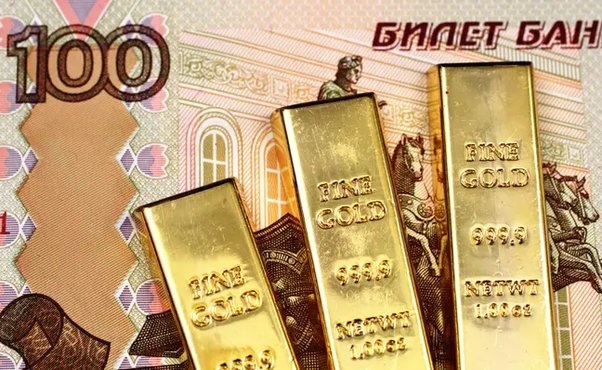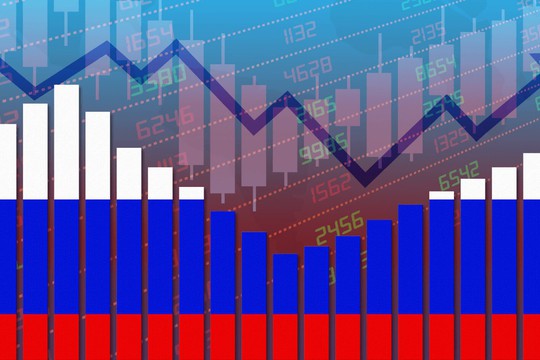How effective are sanctions in dealing with recalcitrant nations? This issue is being discussed once again amid reports that Russia’s economy is faring better than expected two years after the U.S. and European Union imposed sweeping sanctions on it.
The measures included freezing Russia’s holdings of foreign exchange and gold reserves, limiting the central bank’s ability to use dollars and euros and capping prices for Russian oil exports and products. In 2022 Russia garnered the distinction of being the most sanctioned country, with over 13,000 restrictions — more than Iran, Cuba and North Korea combined, according to the Carnegie Endowment for International Peace, writes ‘The Hill’.
The initial assessment of many observers was that the Russian economy would be hit very hard. The most visible indication was a steep plunge in the ruble from March to June 2022. The ruble rallied in the second half of the year, and it weakened again in early 2023 as the European Union imposed a price cap on Russian oil exports.
Russia’s real GDP declined by 2 percent in 2022, and Western analysts anticipated a further contraction in 2023. Instead, the economy grew by more than 3 percent, exceeding most Western economies. Moreover, the International Monetary Fund’s forecast for this year was recently revised up to 2.6 percent from 1.5 percent.
A common explanation for Russia’s favorable performance is that it has circumvented much of the impact of sanctions.
Anne Krueger, former first deputy managing director of the IMF, contends that the sanctions gave rise to several intermediaries that effectively became ”laundromats” for Russian oil and other goods. Also, while oil traders were forced to secure tankers with suitable insurance coverage, oil prices did not fall below $60 per barrel, and it has been well above that level much of the time.
Krueger’s assessment is the effectiveness of sanctions tends to wane over time, while the burden on the countries enforcing them increases. One potential cost is that the dollar’s prominence in international finance could wane over time, called “de-dollarization.”
Putin’s assessment is more upbeat. In a recent speech in Tula, the center of Russia’s arms industry, he crowed that Russia’s economy is now bigger than all but two Western countries, according to the World Bank’s GDP rankings by purchasing power parity. Putin believes he has the advantage if the conflict is protracted because it is harder for the West to stay committed.

How have 16,000 strategic sanctions issued by some of the most powerful economies in the world failed to derail Putin? And there was the answer, hiding in plain sight: “Gold!”, notes ‘The Asia Times’.
Sanctions against Russia needed to be strategic, targeting the environment it operates in.
Economic sanctions targeted shipping and trade into Russia, but the gold market is a massive environment left largely untouched. After Russia invaded Ukraine two years ago, the United Kingdom, a major gold broker with one of the world’s largest gold reserves, cut all Russian imports of gold into the UK.
According to the World Gold Council, Russia is now the second largest producer of gold at 324.7 metric tons in 2023, behind China at 374 million. Russia is expected to increase production of gold by four% a year until 2026.
Russia had been preparing for western sanctions since 2013and managed to isolate its economy from transactions requiring American dollars.
In early 2022, Russia pegged its currency, the ruble, to gold, and 5,000 rubles will now buy an ounce of pure gold. The plan was to shift the currency away from a pegged value and into the gold standard itself so the ruble would become a credible gold substitute at a fixed rate.
The World Gold Council argues that gold is the safest place to invest in times of conflict. But if that were true, there would have been a permanent bull market for gold dating back to Tutankhamen, making the price today infinite.
The UK, the United States and Canada will not touch Russian gold. But others will. The United Arab Emirates (UAE) imported 96.4 metric tons (US$6.2 billion) of Russian gold in 2022 following the British sanctions. That’s up 15 times from the 2021 imports of only 1.3 metric tons (US$84.5 million).
The other big client of Russian gold is Switzerland. In 2022, Switzerland imported 75 metric tons of Russian gold (US$4.87 billion). In 2023, it imported about US$8.22 billion in gold from the UAE (which doesn’t produce its own but buys enormous sums from Russia) and US$3.92 billion from Uzbekistan, Russia’s next-door neighbour.
Russian gold worth billions upon billions of dollars is being freely traded at top dollar while avoiding every one of those 16,000 sanctions.
That’s why global sanctions against Russia haven’t derailed a thing. In order for Putin’s plan for economic resilience through gold to work, however, gold needs to increase in value. His long-term goal is that gold, not the US dollar, will be the global trading currency.
read more in our Telegram-channel https://t.me/The_International_Affairs

 11:51 21.03.2024 •
11:51 21.03.2024 •























